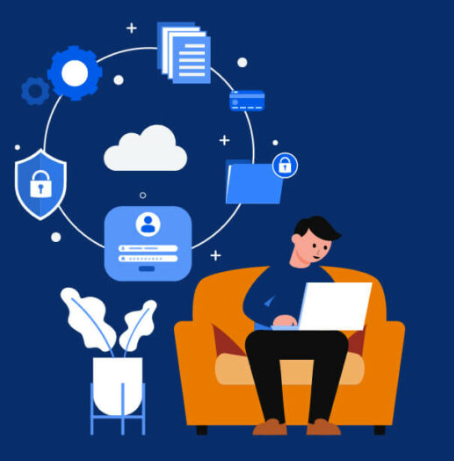Smart Cybersecurity Tips for Small Businesses on a Budget
- 186 Views
- admin
- 09/01/2024
- Cybersecurity
In today’s digital age, even the smallest businesses can fall victim to cybercrime. Hackers don’t just target large corporations—they often go after startups and small enterprises with fewer defenses in place. Without the right protections, businesses risk losing sensitive data, customer trust, and financial stability.
While many small businesses operate with tight budgets, cybersecurity doesn’t have to be expensive to be effective. With a few strategic actions, you can significantly reduce the risk of a cyberattack without breaking the bank.
Practical and Affordable Cybersecurity Measures
Educate Your Team
Employee mistakes are one of the leading causes of security breaches. Many cyberattacks begin with something as simple as clicking a suspicious email. Providing basic cybersecurity training can go a long way in protecting your business. Teach your staff how to recognize phishing attempts, use secure browsing practices, and avoid downloading unknown attachments.
Use Antivirus Software
Make sure every device used for business operations has updated antivirus and antispyware software installed. Regular updates ensure protection against the latest threats, keeping your systems more resilient to attacks.
Secure Your Network
Unprotected internet connections leave the door wide open for hackers. Encrypt your network and use a firewall to shield your data from unauthorized access. If you have a Wi-Fi network, keep it hidden and password-protected.
Strengthen Your Passwords
A strong password is one of the easiest ways to defend your digital assets. Use complex combinations of letters, numbers, and symbols, and update passwords regularly. Avoid reusing the same password across different accounts.
Implement Multi-Factor Authentication (MFA)
MFA adds a second layer of security beyond a password. Requiring a unique code sent to a trusted device makes it much harder for unauthorized users to gain access, even if they have login credentials.
Back Up Your Data
Data loss from a cyberattack can be devastating. Establish a routine backup schedule, and store copies of your data either offsite or in a secure cloud environment. Automated backups are ideal to ensure consistency.
Limit Access to Sensitive Information
Not every employee needs access to all company data. Restrict access based on job roles and responsibilities, and ensure that software installation or major changes go through proper authorization channels.
Consider Hiring a CISO
A Chief Information Security Officer (CISO) can help you create and manage a comprehensive cybersecurity program. Even if hiring a full-time CISO isn’t possible, consider working with a consultant or part-time expert to guide your strategy and risk management.
Protecting Your Business Starts Now
Many small business owners underestimate the potential damage a cyberattack can cause. The truth is that even a brief network disruption can cost thousands of dollars in lost productivity and reputation. Cybercriminals often see small companies as easy targets precisely because they tend to underinvest in security.
But with the right mindset and a few smart choices, even a modest budget can support a solid cybersecurity foundation. By training your staff, securing your systems, and staying proactive, you can defend your business against threats while focusing on growth and success.
Recent Posts
- How AI is Revolutionizing Architectural Design: A Look at Tools, Trends, and the Future
- Streamlining Cyber Risk Assessments Through Automation
- Understanding the Difference Between Blockchain and Distributed Ledger Technology
- Is Bitcoin Mining Still a Viable Venture in 2025?
- Exploring AI: Unveiling Possibilities, Challenges, and Future Implications

